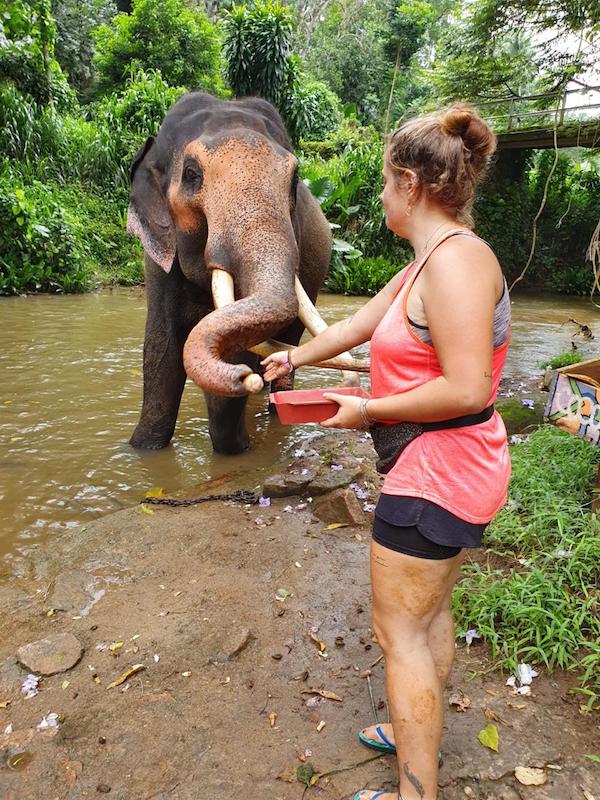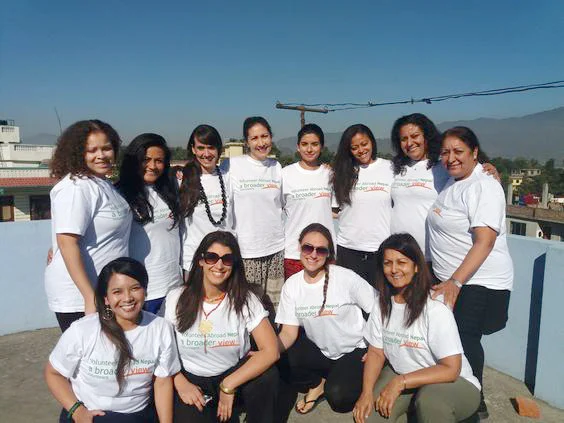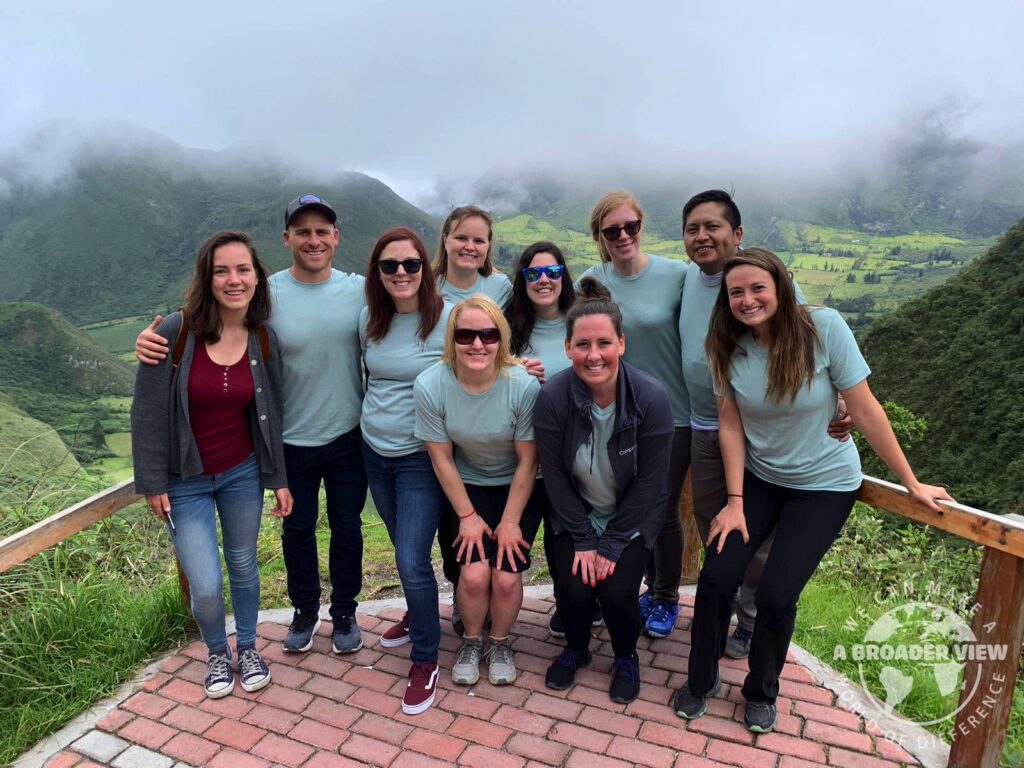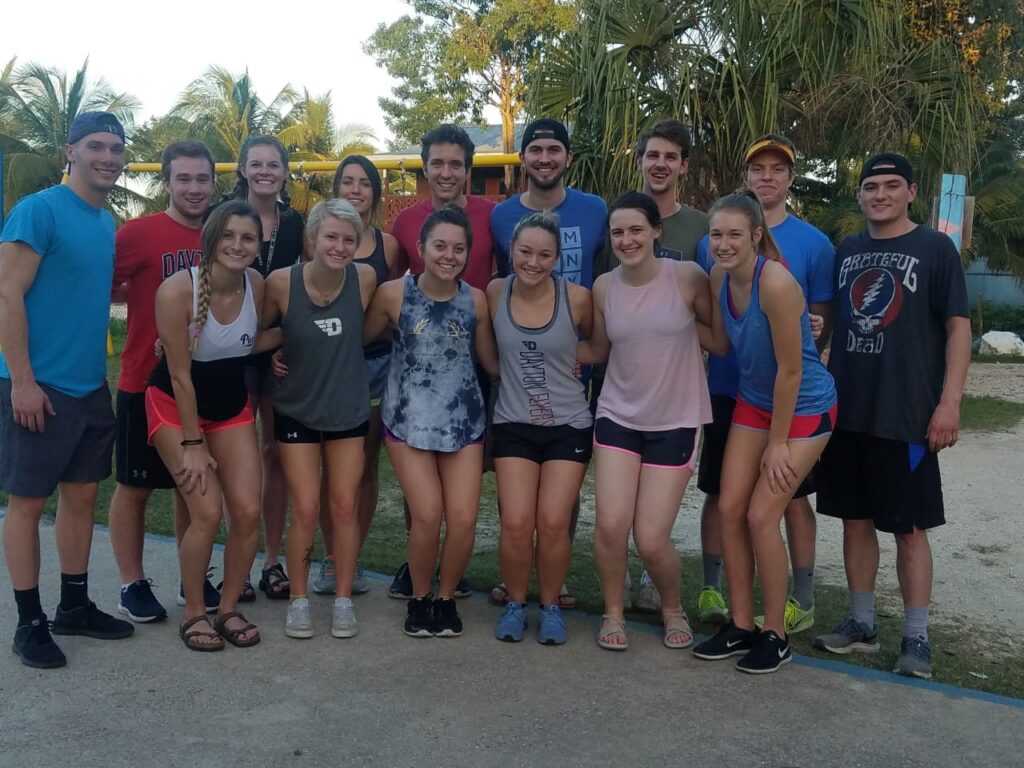Volunteerism holds a special place in the hearts of many. It’s the selfless act of giving our time, skills, and resources to make a difference in the lives of others. But have you ever wondered how small actions in volunteer projects can create big impacts? The answer lies in the ripple effect.
Think of the ripple effect as the spreading of positive waves. Just like a drop of water creates ripples that extend far beyond its initial impact, every small action in a volunteer project can have a profound effect on individuals, communities, and even the world. From tutoring a child to building homes for the homeless, every act of kindness has the potential to create lasting change.
In this article, we will explore the power of small actions in volunteer projects and how they can lead to significant impacts. We will delve into the importance of volunteerism, how to identify the right project, take the first steps, make an impact through small actions, inspire others to get involved, overcome challenges, and celebrate the ripple effect.
So, grab a cup of tea and get ready to discover how you can make a difference through volunteer projects. Let’s dive in!
Understanding Volunteerism
Defining Volunteerism
Volunteerism can be defined as the act of willingly giving your time and energy to help others without expecting anything in return. It involves engaging in various projects and activities that aim to make a positive difference in the lives of individuals, communities, and the environment.
The Importance of Volunteer Projects
Volunteer projects play a crucial role in addressing societal needs and creating positive change. They provide an opportunity for individuals to contribute to causes close to their hearts and make a meaningful impact. Here are a few reasons why volunteer projects are so important:
- Addressing social issues: Volunteer projects focus on a wide range of social issues, such as poverty, education, healthcare, environmental conservation, and more. By actively participating in these projects, individuals can play a part in creating a more equitable and sustainable society.
- Bringing communities together: Volunteer projects often involve working alongside other like-minded individuals, fostering a sense of community and solidarity. These projects provide a platform for people from diverse backgrounds to connect and work toward a common goal.
- Personal development: Engaging in volunteer projects offers opportunities for personal growth. It allows individuals to acquire new skills, gain leadership experience, and develop a sense of empathy and compassion. These experiences can be valuable for personal and professional development.
- Building a better future: Volunteer projects plant the seeds for a brighter future. They create a ripple effect, inspiring others to get involved and nurturing a culture of giving back. Through small, collective efforts, volunteer projects have the potential to bring about lasting change.

Volunteerism is not just an act of kindness; it is a powerful tool for creating a better world. By understanding the importance of volunteer projects, we can better appreciate the impact they have on individuals and communities.
Identifying the Right Volunteer Project
Volunteering is a selfless act that allows individuals to make a positive impact in their communities and beyond. However, with so many volunteer projects available, it can sometimes be overwhelming to choose the right one. Here are some tips to help you identify the right volunteer project for you:
Finding Your Passion
Before embarking on any volunteer project, it’s important to consider your passions and interests. Ask yourself: “What causes am I most passionate about? What social issues do I want to contribute to?” Whether it’s environmental conservation, animal welfare, education, or healthcare, choosing a project aligned with your interests will make the experience more fulfilling and rewarding.
Considering Time and Resources
Another crucial aspect to consider is the amount of time and resources you are willing and able to commit. Assess how much time you can realistically dedicate to volunteer work. This can range from a few hours a week to several weeks or months. Additionally, consider the financial resources needed for a particular project. Some projects may require travel expenses, while others might have associated costs for materials or equipment. Be sure to choose a project that aligns with your availability and budget.
Researching Project Opportunities
Once you have identified your passions and availability, it’s time to research project opportunities. There are various ways to find volunteer projects that match your criteria:
- Search Online: Use search engines and dedicated volunteer platforms to find projects in your area or around the world. Websites like VolunteerMatch, Idealist, and GlobalGiving have extensive databases of volunteer opportunities.
- Network: Reach out to friends, family, or acquaintances who have volunteered before. They may have valuable recommendations or connections in the field of volunteerism.
- Local Community Organizations: Check with local community centers, religious institutions, or non-profit organizations in your area. They often have volunteer programs or can provide guidance on where to find them.
- Social Media: Follow social media accounts of organizations that align with your interests. They often post about volunteer opportunities, events, and campaigns.

Remember to thoroughly research each project opportunity to ensure its authenticity and alignment with your values. Check reviews, testimonials, and the organization’s mission statement to gain a better understanding of what to expect.
By taking the time to identify the right volunteer project, you are setting yourself up for a meaningful and impactful volunteering experience. Remember, every small action adds up and can create a significant ripple effect in the lives of others.
Taking the First Steps
When it comes to getting started with volunteer work, taking the first steps can sometimes feel overwhelming. However, with a little guidance and the right mindset, you’ll soon find yourself embarking on a rewarding journey of making a positive impact in your community and beyond. Here are some essential steps to help you get started:
Finding Volunteer Organizations
The first step in getting involved in volunteer projects is to find the right volunteer organization that aligns with your interests and values. Here are a few ways you can go about finding reputable volunteer organizations:
- Research online: Use search engines to find volunteer organizations in your area or those that focus on causes you’re passionate about.
- Ask friends and family: Reach out to your network and see if anyone has experience with volunteer organizations they can recommend.
- Attend volunteer fairs or events: Check for local volunteer fairs or events where you can connect with different organizations and learn more about their work.
Contacting and Joining a Project
Once you’ve found a volunteer organization or project that interests you, the next step is to reach out to them and express your interest in getting involved. Here’s how you can proceed:
- Make the initial contact: Send an email or make a phone call to the organization, introducing yourself and expressing your interest in volunteering.
- Ask about available opportunities: Inquire about specific projects or opportunities that are currently available and ask about any requirements or qualifications.
- Discuss your availability: Communicate your availability and how much time you’re willing to commit to the project. This will help the organization match you with the right role.
- Joining the project: Once you’ve gone through the application process and any necessary training, you’ll officially become part of the volunteer project.
Understanding Project Goals
Before starting your volunteer work, take the time to understand the goals and objectives of the project. Knowing what the organization aims to achieve will help you align your efforts and better contribute to the overall success of the project. Here are a few ways you can gain a better understanding of the project goals:
- Read project materials: Study any materials provided by the organization, such as project descriptions, reports, or volunteer handbooks. These will often outline the project’s objectives and expectations.
- Ask questions: Don’t hesitate to reach out to the project coordinator or other volunteers if you have any questions or need clarification on the goals of the project.
- Participate in orientation or training sessions: Many organizations conduct orientation or training sessions for volunteers. These sessions will provide you with a deeper understanding of the project’s goals and how you can contribute effectively.
Remember, taking the first steps is the beginning of a remarkable journey. Embrace the learning process, be open-minded, and stay committed to making a difference. Your small actions can have a ripple effect that creates a big impact in the lives of others.
“You don’t have to be great to start, but you have to start to be great.” – Zig Ziglar
Making an Impact Through Small Actions
When it comes to volunteer projects, it’s easy to think that big actions are the only way to make a significant impact. However, it’s important to remember that even small actions can have a ripple effect and create a big impact. In this section, we’ll explore how you can make a difference through small actions in your volunteer projects.

The Power of Consistency
Consistency is key when it comes to making an impact through small actions. By consistently showing up and putting in effort, you not only contribute to the project but also inspire others to do the same. It’s the accumulation of these small actions over time that can bring about lasting change. Whether it’s volunteering once a week or dedicating a few hours every month, consistency is what drives progress.
Importance of Communication
Communication plays a crucial role in the success of any volunteer project. By effectively communicating with your fellow volunteers, project coordinators, and the community you’re serving, you ensure that everyone is on the same page and working towards a common goal. Regularly updating others on your progress, sharing ideas, and addressing any challenges that arise can make a significant difference in the overall outcome of the project. So don’t underestimate the power of open and transparent communication.
Leveraging Personal Skills
We all have unique skills and talents that we can contribute to volunteer projects. Whether you’re a skilled communicator, a talented artist, or have a knack for organization, these personal skills can make a huge impact when utilized effectively. Take the time to assess your own strengths and find creative ways to apply them to your volunteer work. Maybe you can design promotional materials, lead workshops, or use your organizational skills to streamline project logistics. By leveraging your personal skills, you not only maximize your impact but also inspire others to do the same.
“Small actions, when multiplied by millions of people, can transform the world.” – Howard Zinn
Remember, every small action counts. By consistently showing up, communicating effectively, and leveraging your personal skills, you can create a ripple effect that goes beyond your immediate involvement in the volunteer project. Your actions have the power to inspire others and create a positive change in the community you’re serving. So don’t underestimate the impact you can make through small actions.
Inspiring Others to Get Involved
Volunteerism is not only a personal journey, but it’s also an opportunity to inspire and invite others to make a difference in their communities. When you are passionate about a volunteer project and have experienced the transformative power of your actions, it’s natural to want to share your enthusiasm and encourage others to join in. Here are some effective ways to inspire others to get involved:
1. Leading by Example
One of the most powerful ways to inspire others is by leading by example. When people see your dedication and the positive impact you are making, they are more likely to be motivated to take action themselves. Be consistent in your volunteer efforts and showcase the joy and fulfillment it brings into your life. Actions speak louder than words, so let your actions inspire others to follow in your footsteps.
2. Sharing Personal Stories
Personal stories have the ability to touch hearts and ignite a sense of empathy in others. Share your personal experiences as a volunteer – the challenges you’ve faced, the memorable moments, and the impact it has had on your life. By sharing your story, you allow others to connect with your journey and see the real impact that volunteerism can have. Through storytelling, you can inspire others to step out of their comfort zones and make a difference.
3. Promoting Volunteerism
Spread the word about volunteerism and the projects you are involved in. Utilize social media platforms, community bulletin boards, and word of mouth to promote the cause and the opportunities available. Encourage your friends, family, and colleagues to get involved by highlighting the benefits of volunteering, such as personal growth, building skills, and creating meaningful relationships. By actively promoting volunteerism, you are creating a culture of giving back.
Remember, inspiring others to get involved is about creating awareness, showcasing the impact of volunteerism, and inviting others to join in. With your passion and enthusiasm, you have the power to spark a ripple effect that can create waves of positive change in your community. So, don’t hesitate to share your story and encourage others to join you on this incredible journey.
Challenges and Solutions
Volunteer projects, like any other endeavor, come with their own set of challenges. It’s important to be aware of these challenges and have a plan to overcome them. Here are some common challenges faced during volunteer projects and potential solutions to address them:
1. Overcoming Obstacles:
Volunteer projects can face various obstacles that hinder progress or affect the overall outcome. These obstacles may include limited resources, logistical challenges, and unexpected setbacks. However, with the right approach, they can be overcome. Some solutions to consider include:
- Resource Management: Prioritize resources and ensure they are allocated effectively to maximize impact.
- Flexibility: Be prepared to adapt plans to overcome unforeseen obstacles and make the necessary adjustments.
- Problem-solving skills: Encourage volunteers to think creatively and collaboratively to find solutions to challenges as they arise.

2. Collaborating with Fellow Volunteers:
Collaboration is key when it comes to volunteer projects. However, working with a diverse group of individuals can present its own set of challenges. Here are some solutions to foster effective collaboration:
- Clear communication: Establish open channels of communication to ensure everyone is on the same page and working towards the same goal.
- Team building: Encourage team-building activities to foster a sense of camaraderie and unity among volunteers.
- Resolving conflicts: Address conflicts promptly and tactfully to maintain a positive and productive working environment.
3. Adapting to Change:
Volunteer projects often operate in dynamic environments where change is inevitable. It is crucial to be adaptable and respond effectively to changes as they arise. Here are some solutions to embrace:
- Flexibility: Stay open-minded and willing to adjust plans or approaches to accommodate changes in circumstances.
- Creative problem-solving: Encourage volunteers to think outside the box and find innovative solutions when faced with unexpected challenges.
- Learning from experiences: Reflect on past experiences to identify areas for improvement and implement changes for future projects.
Remember, overcoming challenges is a part of the volunteer journey. By approaching these challenges proactively and finding suitable solutions, you can ensure the success of your volunteer project and make a meaningful impact on the community you serve.
Celebrating the Ripple Effect
Volunteering is more than just lending a helping hand. It’s about creating a ripple effect that can have a lasting impact on communities and individuals. When we take small actions in volunteer projects, we have the power to create big changes and inspire others to get involved. In this section, we will explore the importance of celebrating the ripple effect and how it can motivate us to continue making a difference.
Measuring Success
When we embark on a volunteer project, it’s essential to define what success means to us. Success can be measured in various ways, such as:
- Impact on individuals: Seeing the positive transformation in the lives of those we help is one of the most rewarding aspects of volunteering. Whether it’s providing education, healthcare, or support, knowing that we have made a difference is a measure of success.
- Community involvement: A successful volunteer project involves engaging the community and fostering a sense of collaboration. When we see community members coming together to support a cause, it indicates that our project has had a meaningful impact.
- Sustainability: The sustainability of a project is crucial in ensuring long-term positive effects. For example, if our volunteer project involves building infrastructure, seeing it well-maintained and utilized by the community years after our involvement is a testament to our success.
Appreciating Contributions
Celebrating the ripple effect also means acknowledging the contributions of all those involved in volunteer projects. This includes:
- Volunteers: Every volunteer effort, no matter how small, contributes to the overall impact. Each volunteer brings their skills, time, and dedication to the project, and their commitment should be appreciated.
- Project coordinators: Behind every successful volunteer project, there are dedicated project coordinators who organize and manage the initiative. Recognizing their efforts and leadership is essential in celebrating the ripple effect.
- Local communities: The support and cooperation of the local communities play a significant role in the success of a volunteer project. Appreciating their involvement and showing gratitude can strengthen the bonds between volunteers and the communities they serve.

Recognizing Collective Impact
Volunteer projects are rarely accomplished in isolation. They require the collective effort and collaboration of volunteers, organizations, and communities. Recognizing and celebrating the collective impact can:
- Inspire others: When we showcase the collective impact of volunteer projects, it can inspire others to get involved and contribute to making a positive change in their own communities. Sharing success stories and testimonials can motivate others to take action.
- Build strong networks: Celebrating the ripple effect brings people together and builds strong networks within the volunteering community. By showcasing the combined efforts of individuals and organizations, we can foster a sense of solidarity and encourage collaboration for future projects.
- Create a ripple effect of its own: By celebrating the ripple effect, we create a cycle of inspiration and motivation. When individuals witness the positive changes brought about by volunteer projects, they become more likely to initiate their own projects, thus continuing the ripple effect.
In conclusion, celebrating the ripple effect of small actions in volunteer projects is vital in recognizing the impact we can make as individuals and as a collective. By measuring success, appreciating contributions, and recognizing the collective impact, we can inspire others, build strong networks, and continue creating a cycle of positive change. So let’s celebrate the ripple effect and keep making a difference in our communities!
Conclusion
Volunteer projects may seem like small actions, but they have the power to create big impacts. By understanding the importance of volunteerism and identifying the right project, you can take the first steps towards making a difference. Through consistent effort, effective communication, and the leverage of personal skills, you can make a real impact in the communities you serve.
In addition to the direct impact you make, your actions have the potential to inspire others to get involved. Whether it’s through leading by example, sharing personal stories, or promoting volunteerism in your circles, you have the power to ignite the passion for giving back in others.
However, volunteer projects also come with challenges. Overcoming obstacles, collaborating with fellow volunteers, and adapting to change are essential to staying motivated and ensuring the success of the project.
Despite the challenges, it is essential to celebrate the ripple effect of volunteer projects. Measuring success, appreciating the contributions of all involved, and recognizing the collective impact are crucial for sustaining volunteer efforts and ensuring their long-term success.
In conclusion, volunteer projects are not just about small actions, they are about creating big impacts. By getting involved, you have the opportunity to make a positive difference in the lives of others, while also inspiring those around you to do the same. So, take the first steps, embrace the challenges, and celebrate the ripple effect of your volunteer efforts. Together, we can create a brighter and more compassionate world.

Frequently Asked Questions
- Why is it important to focus on small actions in volunteer projects?
Focusing on small actions in volunteer projects is important because they can have a significant impact when combined. Small actions are more manageable and achievable, making them easier for volunteers to participate in and contribute to the overall project.
- How do small actions create big impacts in volunteer projects?
Small actions in volunteer projects, when performed by a group of individuals, can create a ripple effect. Each small action leads to another, and as more people get involved, the collective efforts result in a significant and meaningful impact on the community or cause.
- What are some examples of small actions in volunteer projects?
Examples of small actions in volunteer projects include picking up litter in a park, planting trees, organizing donation drives, tutoring children, serving meals at a homeless shelter, or participating in community clean-up activities.
- How can small actions inspire others to get involved in volunteer projects?
When individuals witness the impact of small actions in volunteer projects, they are motivated and inspired to join in. Seeing how their small efforts contribute to a larger cause shows them that their actions matter and can make a difference.
- How can volunteer project organizers encourage small actions among participants?
To encourage small actions among participants, volunteer project organizers should communicate the importance and impact of these actions, set achievable goals, provide clear instructions and guidelines, recognize and appreciate volunteers’ contributions, and highlight success stories resulting from small actions.
-
Volunteering Abroad with Medical Missions: Make a Difference Today

Join medical group trips, Nurses Without Borders, and Dentists Without Borders to make a difference in underserved communities worldwide. Learn about the countries where these programs operate and read real-life experiences from volunteers. Volunteering overseas is an excellent opportunity to make a difference in the lives of others while experiencing new cultures and forging unforgettable…
-
Embrace Overseas Service | Transform Lives Through Global Volunteerism

International Volunteering: Discover Meaningful Travel and Transform Lives with A Broader View
-
A World of Opportunities: Unveiling the Benefits of International Volunteer Programs

Discover numerous benefits of international volunteer programs and unleash a world of rewarding opportunities with our in-depth guide.



